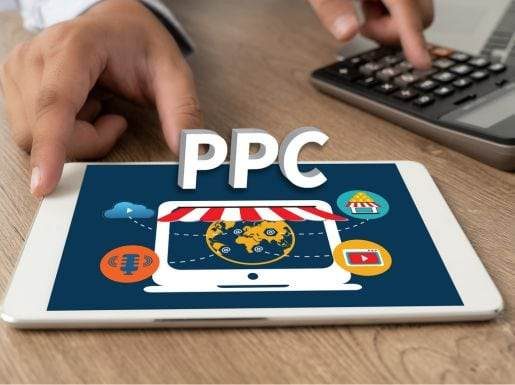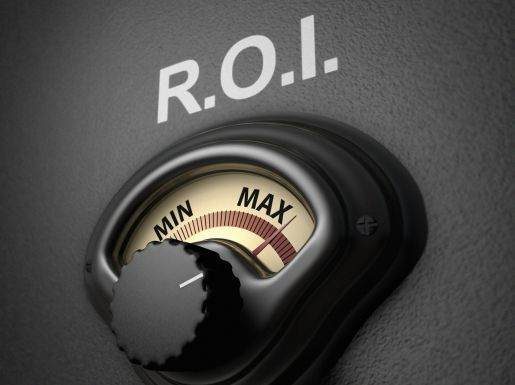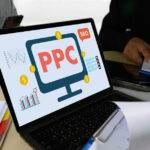Proven Strategies to Maximize ROI on Your PPC Campaigns

Robert Connor
Last Updated February 11, 2025
Introduction
"Welcome to the world of Proven Strategies to Maximize ROI on Your PPC Campaigns, where we dive deep into the most effective tactics to ensure every dollar you invest in your pay-per-click advertising delivers the highest possible return.
Whether you're a seasoned digital marketer or just getting started with PPC, this comprehensive guide will equip you with the knowledge and insights needed to optimize your campaigns, drive quality traffic, and ultimately achieve outstanding results. Join us as we explore the proven strategies that will take your PPC efforts to the next level and unlock the full potential of your advertising budget."
- What is a PPC Campaign and How Does it Work?
- What are the Key Metrics to Track in PPC Advertising?
- How to Optimize Your PPC Ads for Better Performance?
- Which PPC Platforms Should You Consider?
- How to Manage and Adjust Your PPC Campaign for Better ROI?
- How Can You Save Money with Your PPC Advertising?
- Conclusion:
- FAQ'
,
,
What is a PPC Campaign and How Does it Work?
 A PPC campaign, or pay-per-click campaign, is a form of online advertising where advertisers pay a fee each time their ad is clicked. It's a way of buying visits to your site, rather than attempting to "earn" those visits organically. Search engine advertising is one of the most popular forms of PPC.
It allows advertisers to bid for ad placement in a search engine's sponsored links when someone searches for a keyword that is related to their business offering. Every time your ad is clicked, sending a visitor to your website, you pay the search engine a small fee.
A PPC campaign, or pay-per-click campaign, is a form of online advertising where advertisers pay a fee each time their ad is clicked. It's a way of buying visits to your site, rather than attempting to "earn" those visits organically. Search engine advertising is one of the most popular forms of PPC.
It allows advertisers to bid for ad placement in a search engine's sponsored links when someone searches for a keyword that is related to their business offering. Every time your ad is clicked, sending a visitor to your website, you pay the search engine a small fee.
Essential Steps to Build a PPC Campaign
Here's a simple list of essential steps to build a PPC campaign: 1. Define your campaign goals and target audience. 2. Conduct keyword research to identify relevant and high-performing keywords. 3. Create compelling ad copy and design engaging ad creatives. 4. Set up conversion tracking to measure the success of your campaign. 5. Choose the right bidding strategy and set your budget. 6. Monitor and analyze the performance of your campaign regularly, and make necessary adjustments to optimize results.How to Choose the Right Keywords for Your PPC Campaign?
Selecting the right keywords for your PPC campaign is crucial for its success. Begin by understanding your target audience and their search behavior. Utilize keyword research tools to identify high-performing and relevant keywords that align with your business offerings. Group these keywords strategically and continuously monitor their performance to make necessary adjustments.
,
,
,
,
What are the Key Metrics to Track in PPC Advertising?
Here's a simple list of key metrics to track in PPC advertising:
1. Click-Through Rate (CTR)
2. Cost Per Click (CPC)
3. Conversion Rate
4. Impression Share
5. Cost Per Acquisition (CPA)
Understanding Click-Through Rate and Its Importance
Understanding click-through rate (CTR) is crucial for PPC advertisers as it measures the effectiveness of ad copy and targeting. By analyzing CTR, advertisers can optimize their campaigns for better performance and ROI.What is the Cost Per Click and How is it Calculated?
Cost per click (CPC) is a vital metric in PPC advertising that measures the efficiency of ad spend. It is calculated by dividing the total cost of clicks by the number of clicks received. Understanding CPC is crucial for advertisers to gauge the effectiveness of their ad campaigns and make informed decisions to optimize their spending for better ROI.How to Measure Conversion Rate in a PPC Campaign?
To measure the conversion rate in a PPC campaign, track the number of conversions divided by the total ad clicks. This metric indicates the quality of traffic driven to the website, helping optimize campaign performance.What is Impression Share?
Understanding impression share is essential for advertisers as it allows them to assess the potential reach and exposure of their ads in the online marketplace. A high impression share indicates that your ads are being displayed frequently when relevant search queries are made or when browsing relevant websites, which can lead to increased brand visibility and potential customer engagement.What is Cost Per Acquisition (CPA)?
Cost Per Acquisition (CPA) is a key metric in pay-per-click (PPC) advertising that measures the cost of acquiring a customer through a specific marketing campaign. It provides valuable insights into the efficiency and effectiveness of a campaign in generating conversions and acquiring new customers. The CPA is calculated by dividing the total cost of the campaign by the number of conversions or acquisitions generated.
,
,
,
,
How to Optimize Your PPC Ads for Better Performance?
 Optimizing your PPC ads for better performance requires a strategic approach that involves careful analysis of keywords, ad copy, and targeting options. Start by conducting thorough keyword research to identify high-performing keywords and negative keywords that can help refine your targeting. Craft compelling ad copy that highlights your unique selling points and encourages clicks. Utilize ad extensions to provide additional information and enhance visibility.
Continuously monitor and analyze your ad performance, making adjustments as needed to maximize your ROI. By implementing these strategies, you can improve the effectiveness of your PPC ads and drive better results for your business.
Optimizing your PPC ads for better performance requires a strategic approach that involves careful analysis of keywords, ad copy, and targeting options. Start by conducting thorough keyword research to identify high-performing keywords and negative keywords that can help refine your targeting. Craft compelling ad copy that highlights your unique selling points and encourages clicks. Utilize ad extensions to provide additional information and enhance visibility.
Continuously monitor and analyze your ad performance, making adjustments as needed to maximize your ROI. By implementing these strategies, you can improve the effectiveness of your PPC ads and drive better results for your business.
Strategies to Improve Your Ad Copy
Improving your ad copy involves crafting compelling and persuasive messaging that resonates with your target audience. Highlight key benefits and unique selling points to capture attention and drive clicks. Utilize A/B testing to refine your messaging and optimize for better performance. Regularly analyze ad engagement metrics to identify areas for improvement and iterate on your copy to maximize results. By implementing these strategies, you can enhance the effectiveness of your ad copy and drive better performance for your PPC campaigns.How to Use Negative Keywords to Filter Out Irrelevant Traffic?
To effectively use negative keywords to filter out irrelevant traffic in your PPC campaigns, start by conducting thorough keyword research to identify potential negative keywords. Analyze your ad performance to identify any irrelevant traffic and use negative keywords to exclude those audiences. Regularly update and refine your negative keyword list based on the performance data to continuously improve the targeting and efficiency of your PPC ads. By implementing these strategies, you can reduce wasted ad spend and drive better results for your campaigns.What Role Do Landing Pages Play in PPC Optimization?
Landing pages play a crucial role in PPC optimization, serving as the destination for your ads and the first point of contact for potential customers. They should align closely with your ad messaging and provide a seamless user experience. Incorporating persuasive copy, relevant imagery, and clear calls to action can significantly impact conversion rates. Additionally, optimizing your landing pages for mobile devices and fast loading times is essential for maximizing engagement and driving better results from your PPC campaigns.
,
,
,
,
Which PPC Platforms Should You Consider?
When considering which PPC platforms to invest in, it's important to evaluate each option based on your specific business needs and target audience. Google Ads, with its expansive reach and targeting options, is a popular choice for many businesses. Facebook Ads, on the other hand, offers precise audience targeting and a variety of ad formats to engage users.
LinkedIn Ads may be the ideal choice if you're targeting a professional audience, while Amazon Advertising is perfect for e-commerce businesses looking to reach customers while they are in a shopping mindset. Each platform has its strengths, so it's crucial to align your choice with your business objectives.
How to Choose Between Google Ads and Bing Ads?
When determining whether to invest in Google Ads or Bing Ads, it's essential to assess the unique features and benefits of each platform. Google Ads provides extensive reach and diverse targeting options, catering to various businesses. Meanwhile, Bing Ads offers its distinct audience and potential for valuable engagement. Considering your business objectives and target audience is crucial in making an informed decision between these two PPC platforms.What Are the Advantages of Facebook Ads?
Facebook Ads offer precise audience targeting and a variety of ad formats, making it an excellent choice for engaging users. With its capabilities, businesses can effectively reach their target audience and drive meaningful engagement.
,
,
,
,
How to Manage and Adjust Your PPC Campaign for Better ROI?
 Managing and adjusting your PPC campaign for better ROI involves continuous monitoring and analysis of key metrics such as click-through rates, conversion rates, and cost per click. It is essential to regularly review your keyword performance and ad copy effectiveness to identify areas for improvement.
A/B testing different ad variations can help optimize your campaign for maximum impact. Furthermore, keeping a close eye on budget allocation and adjusting bids based on performance can ensure efficient spending.
Leveraging data-driven insights and staying updated with industry trends are crucial for effectively managing and adjusting your PPC campaign to drive better ROI.
Managing and adjusting your PPC campaign for better ROI involves continuous monitoring and analysis of key metrics such as click-through rates, conversion rates, and cost per click. It is essential to regularly review your keyword performance and ad copy effectiveness to identify areas for improvement.
A/B testing different ad variations can help optimize your campaign for maximum impact. Furthermore, keeping a close eye on budget allocation and adjusting bids based on performance can ensure efficient spending.
Leveraging data-driven insights and staying updated with industry trends are crucial for effectively managing and adjusting your PPC campaign to drive better ROI.
What are the Best Practices for PPC Management?
Maximizing the effectiveness of your PPC campaign requires diligent management. Regularly monitoring key metrics, such as click-through rates and conversion rates, is essential. Continuously testing different ad variations and adjusting bids based on performance can optimize your campaign for maximum impact. Staying updated with industry trends and leveraging data-driven insights are crucial for effectively managing your PPC campaign.How to Determine the Right Advertising Budget?
Determining the right advertising budget is a critical aspect of managing your PPC campaign effectively. It involves a thorough analysis of your campaign performance, industry benchmarks, and business goals. Regularly assessing the return on investment and making data-informed decisions will help optimize your budget allocation for maximum impact.When and How to Make Adjustments to Your PPC Campaign?
Determining when and how to make adjustments to your PPC campaign is crucial for driving better ROI. Continuous monitoring of key metrics such as click-through rates, conversion rates, and cost per click is essential. Regularly reviewing keyword performance and ad copy effectiveness, as well as A/B testing different ad variations can help optimize your campaign for maximum impact. Additionally, keeping a close eye on budget allocation and adjusting bids based on performance ensures efficient spending. Leveraging data-driven insights and staying updated with industry trends are crucial for effectively managing and adjusting your PPC campaign to drive better ROI.
,
,
,
,
How Can You Save Money with Your PPC Advertising?
,
,
Saving money with your PPC advertising can be achieved through strategic keyword selection, ad targeting, and ad scheduling. By conducting thorough keyword research and identifying long-tail keywords with lower competition, you can optimize your ad spend and reach a more targeted audience.
Additionally, refining your ad targeting to specific demographics, locations, and devices can help minimize wasteful ad spend. Furthermore, leveraging ad scheduling to display your ads during peak conversion times can maximize your budget efficiency.
Regular monitoring and optimization of your PPC campaigns can also contribute to cost savings by identifying and eliminating underperforming keywords and ads.
Effective Strategies to Lower Your PPC Costs
Lowering your PPC costs involves precise ad targeting and optimal ad scheduling. By researching keywords thoroughly and identifying low-competition long-tail keywords, you can optimize ad spend and reach a targeted audience. Regularly monitoring and optimizing PPC campaigns contributes to cost savings by identifying and eliminating underperforming keywords and ads.How to Use Ad Groups to Save Money?
To save money using ad groups, you can organize your PPC ads into specific themes or categories, allowing for more targeted messaging and better control over your budget allocation. By grouping related keywords and ads together, you can improve the relevance and quality of your ads, which can lead to higher ad rankings and lower costs per click. This method also enables you to tailor your ad copy to match the intent of the user, increasing the likelihood of clicks and conversions. Additionally, by closely monitoring the performance of each ad group, you can identify and reallocate the budget away from underperforming groups, further optimizing your ad spend.Tips for Better ROI with PPC Advertising
Maximizing your ROI with PPC advertising requires strategic planning and continuous optimization. Begin by conducting thorough keyword research to identify long-tail keywords with lower competition. Refine your ad targeting to specific demographics, locations, and devices for more efficient spending. Additionally, leverage ad scheduling to display your ads during peak conversion times. Regular monitoring and optimization of your PPC campaigns is crucial to identifying and eliminating underperforming keywords and ads, ultimately improving your ROI.
,
,
Conclusion:
Mastering the intricacies of PPC advertising and optimization is essential for achieving exceptional results and maximizing the return on your advertising investment. From harnessing the potential of negative keywords to refining landing pages, selecting the right PPC platforms, and managing budgets effectively, each component plays a pivotal role in elevating the impact of your campaigns.
With a comprehensive understanding of these essential tactics, businesses can navigate the dynamic landscape of PPC advertising and propel their campaigns to new heights of success.




